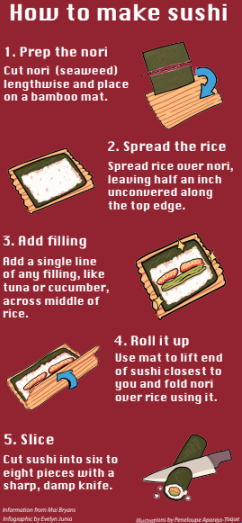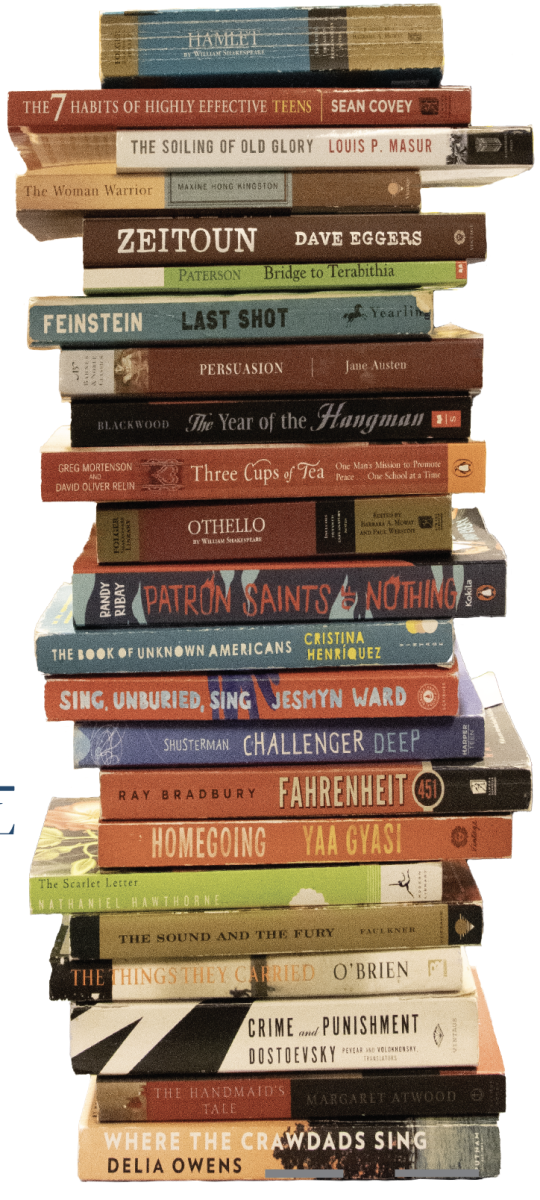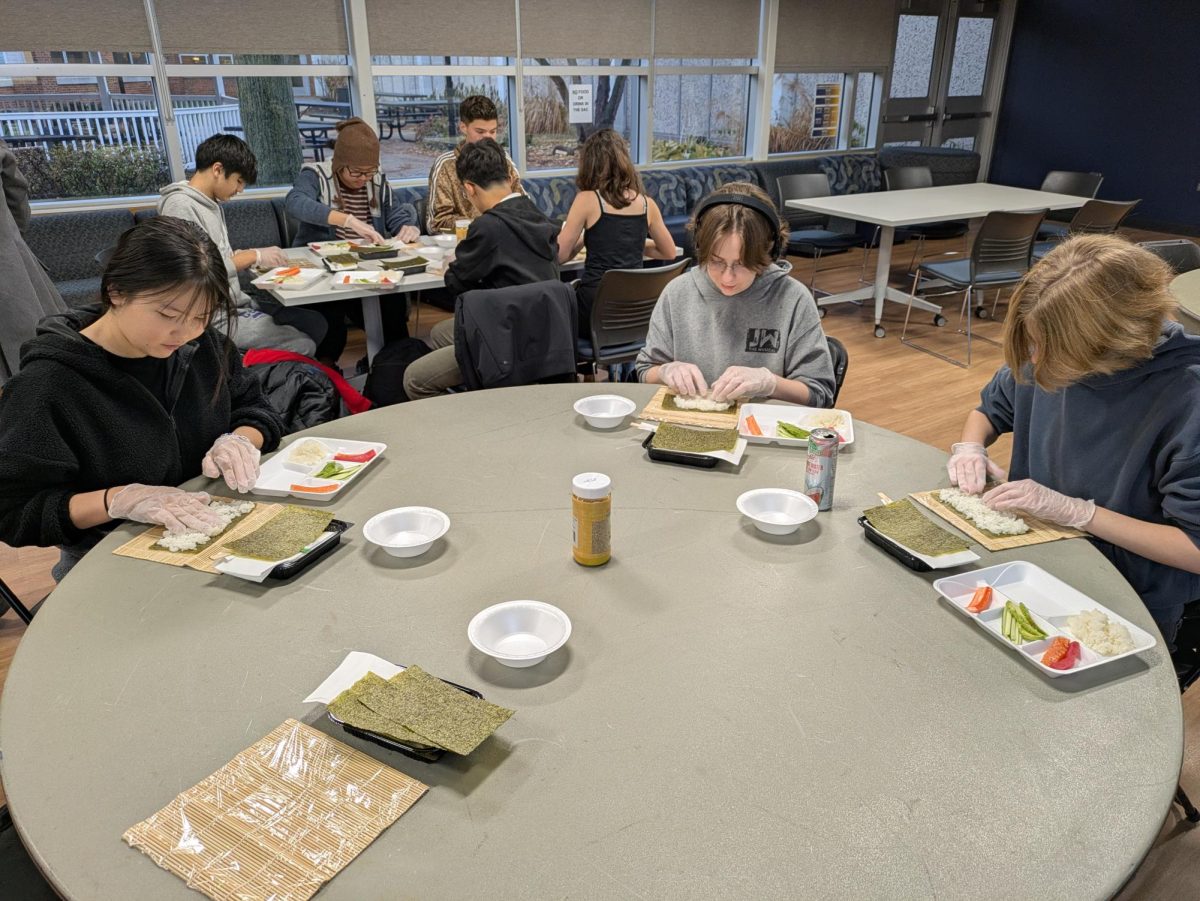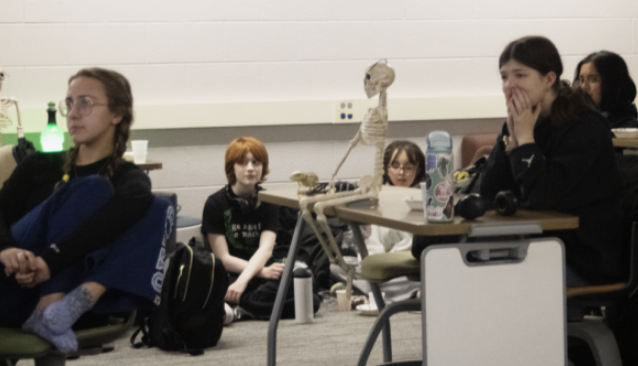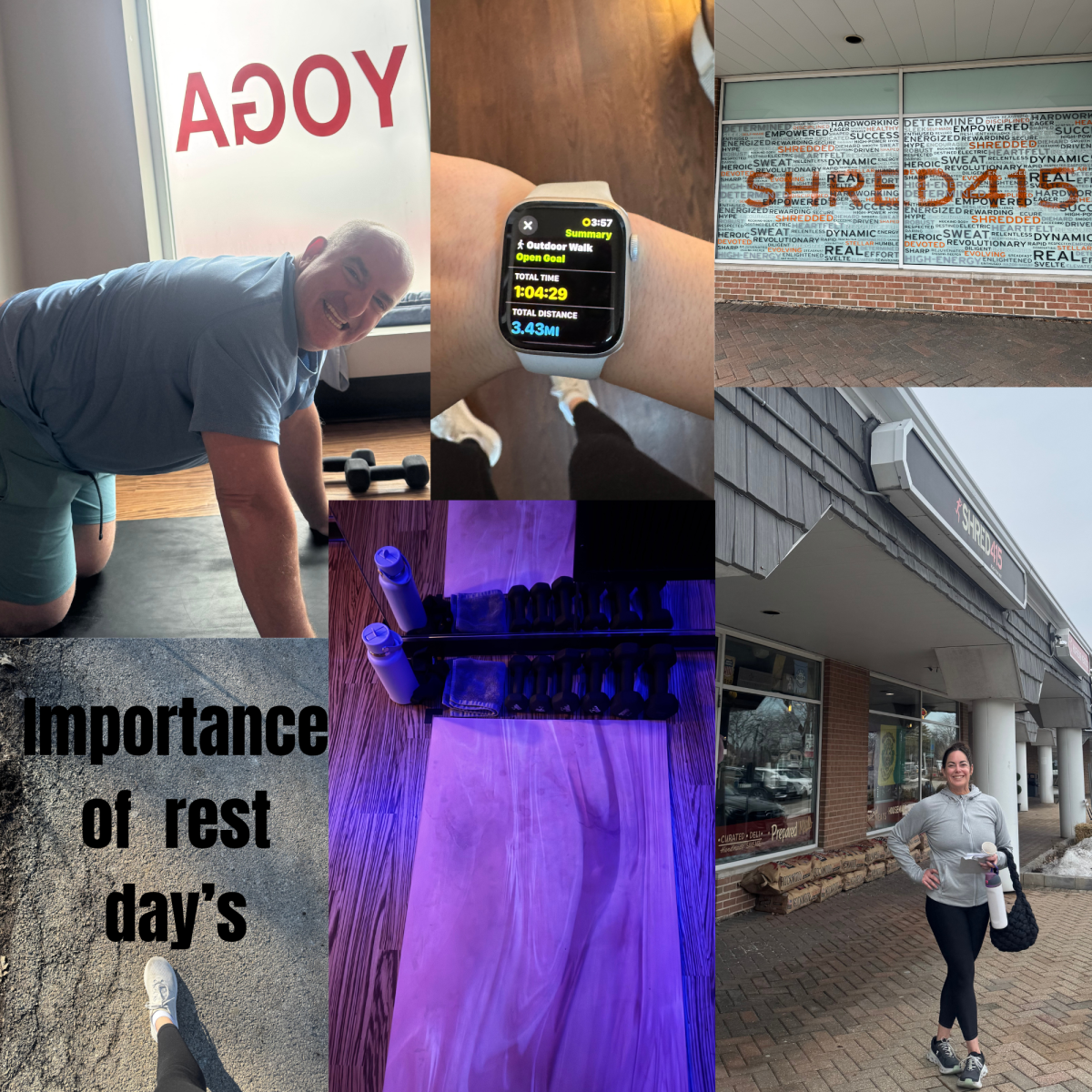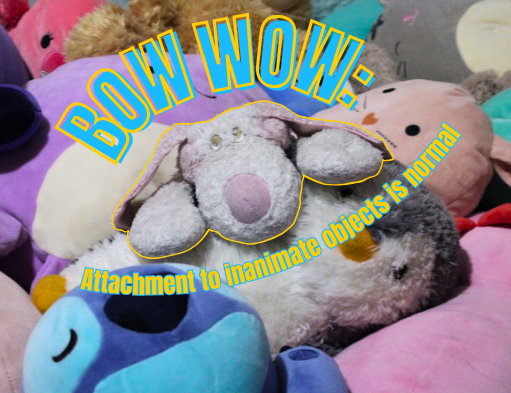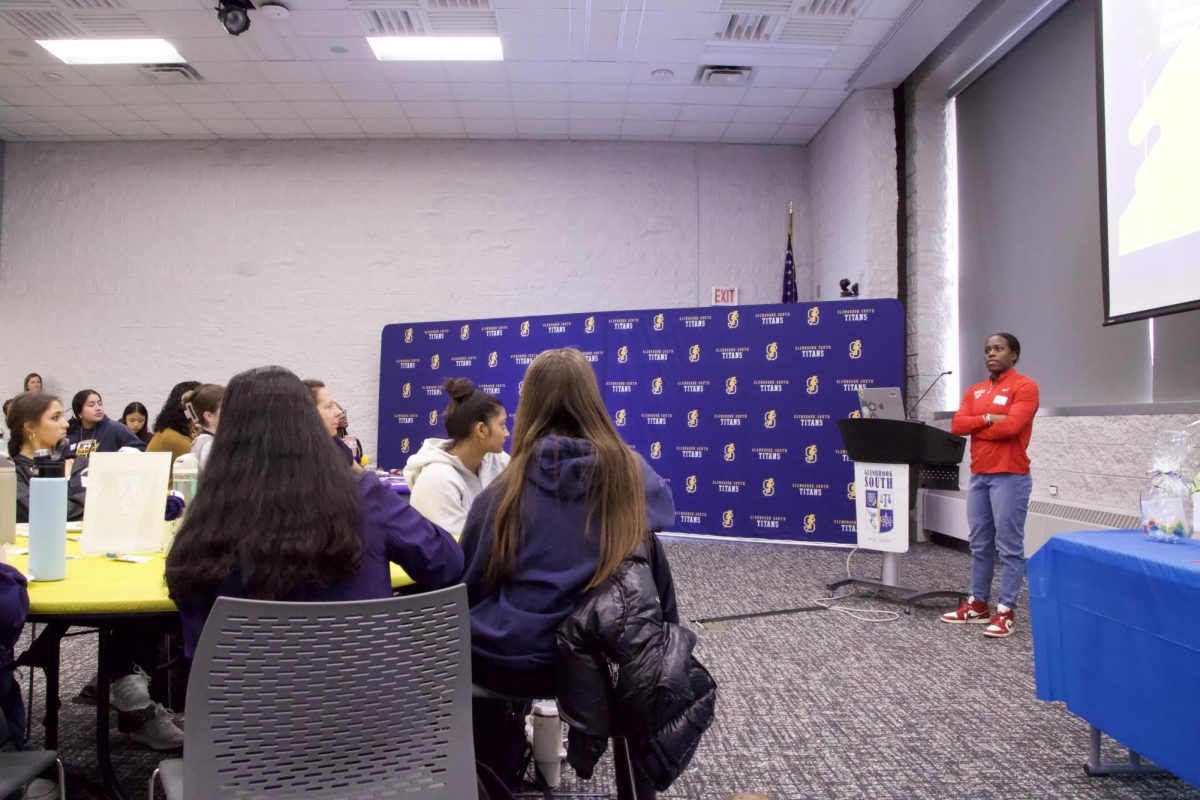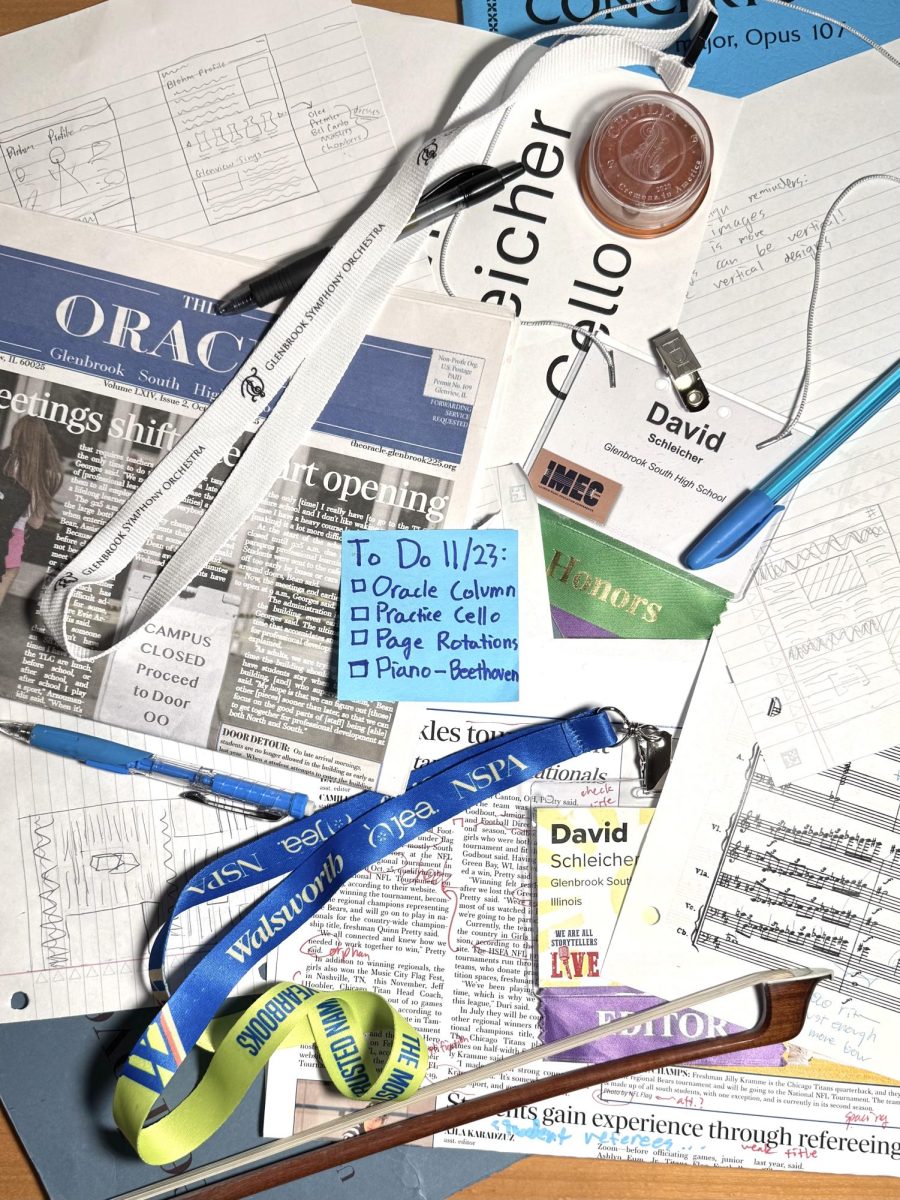Each human being experiences different emotions. South students and faculty have further explored the meanings of these attributes and discovered that they can be seen in several different ways.
For Issues and Answers class taught by Dan Zapler, social studies teacher, South alumnus Patricia Ayad created a book in which students wrote their perception of love and left it with Zapler to pass to future students.
According to Zapler, the “Love Book” began to inspire other students to create books with other concepts, such as hope and happiness, that are being passed around the school today.
“These books represent the perfect teaching moment,” Zapler said. “When you have an idea and a student takes it and adds on to it.”
South alumnus Ryan Kuramitsu said that he created his own Love Book because he believes love should not be confined to only one book.
“Love isn’t solitary; you can’t love alone, that’s literally just selfishness or loneliness,” Kuramitsu said. “Love is a group activity. It should spread.”
Kuramitsu believes the Love Book is a great example of how similar humans actually are in regards to their wants and needs.
“There’s a lot of beauty written into its pages, but there is also a lot of brokenness and pain there,” Kuramitsu said. “But it’s real, and that’s why people have latched onto it; it’s alive.”
Senior Katharine Battaglia fell in love with the Love Book for the same reason, so she decided to keep the legacy alive.
“I was really interested in not only how people perceive love, but hope as well,” Battaglia said. “In my experience, people who wrote in the Love Book want others to experience defining love because they have found a lot of joy in doing it for themselves and because of this I decided to start my own book focused on hope.”
Battaglia described the “Hope Book” as how people identify hope in their lives.
“Whether [the entry] is written, drawn or in the form of poetry, the Hope Book allows people who want their personal story to be heard to have an outlet and a place to document their experience,” Battaglia said.
Battaglia believes that people who fill in an entry usually flip through the already filled-out pages and read others’ stories of hope.
“When someone reads through the passages in the book and decides to journal, not only are they adding a new perspective to the book, but also receiving a ton of new insight,” Battaglia said.
According to Battaglia, if you have hope, no matter how dismal your situation may seem, you feel relief.
“Usually, what brings you hope isn’t you, it’s something […] or someone else in your life,” Battaglia said.
Battaglia was the first one to write in senior Nigel Howard’s “Happiness Book”. She believes hope has a direct correlation to happiness.
“I think hope is the opposite of despair and just knowing that there is always something more and something bigger than you makes you happier,” Battaglia said.
According to Howard, the Happiness Book is a book with many authors’ ideas about what happiness is, where it can be found and why it’s important.
“Recently, with college being big in my life, I kept finding that no matter what I did in life I wanted to be happy,” Howard said. “I realized I knew nothing about happiness as a subject and just that there are times I have felt it, so I created this book to learn more about it.”
Despite the fact that eight or nine entries have been documented, Howard admits that he still does not exactly know how to define happiness.
“How you can get happiness out of life itself is my question that I want to answer through this,” Howard said.
According to Howard, the Happiness Book allows him to connect with others about his ideas.
“I want to be happy, and I enjoy seeing others happy, and this book is my way of letting others express their happiness with me,” Howard said.




